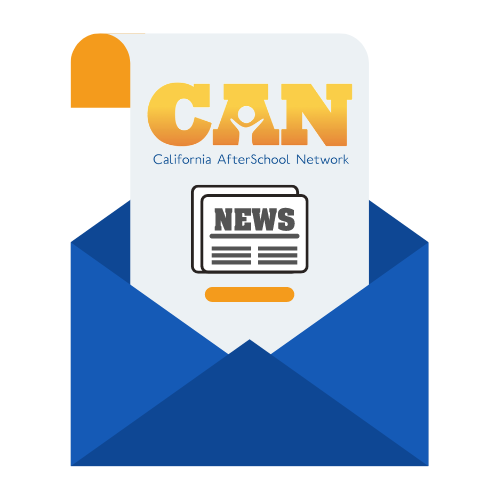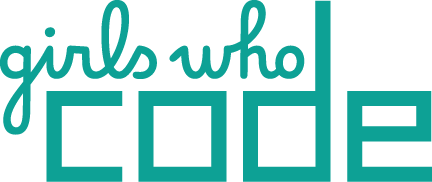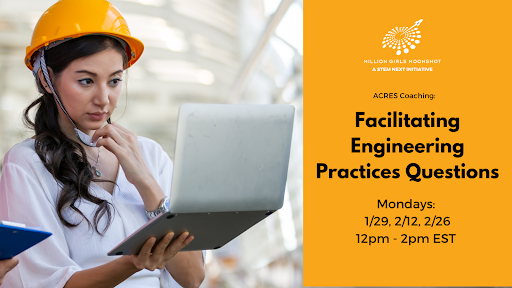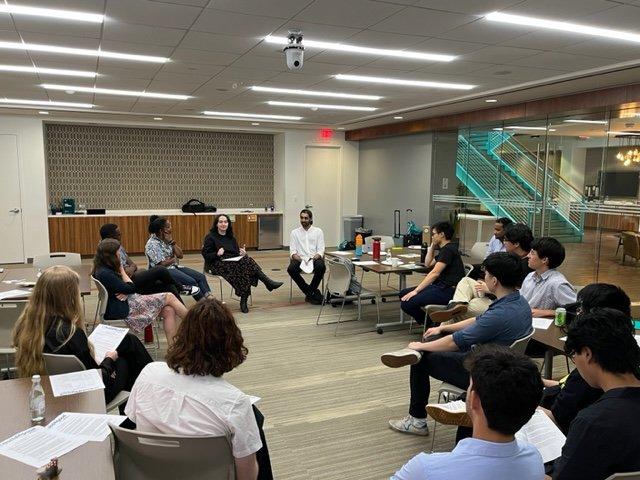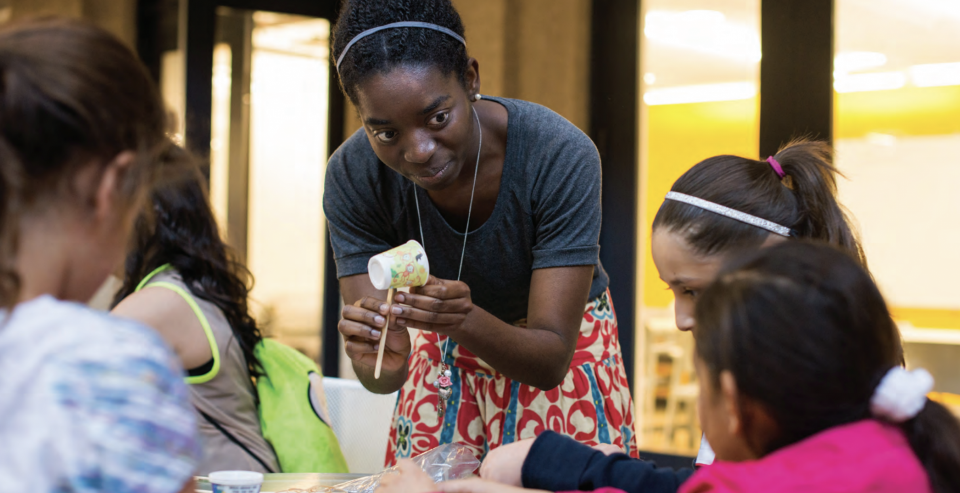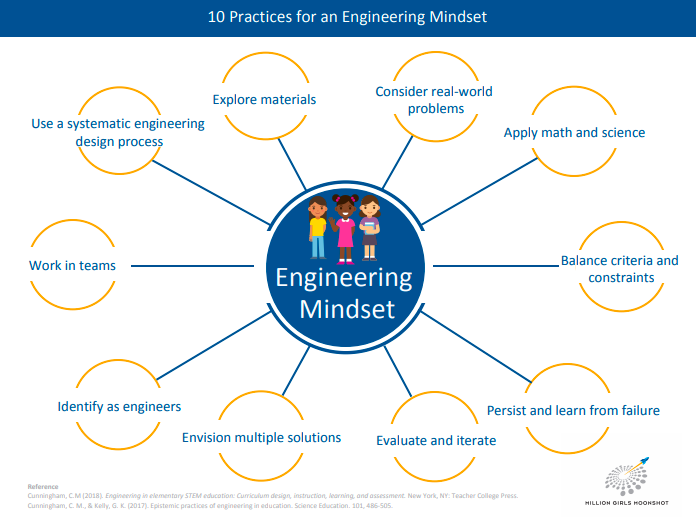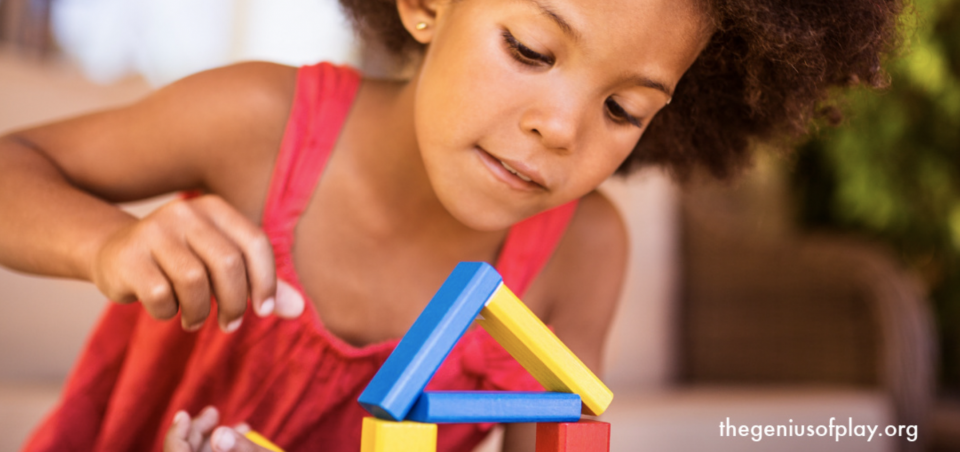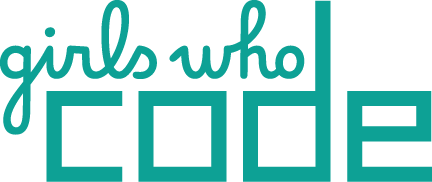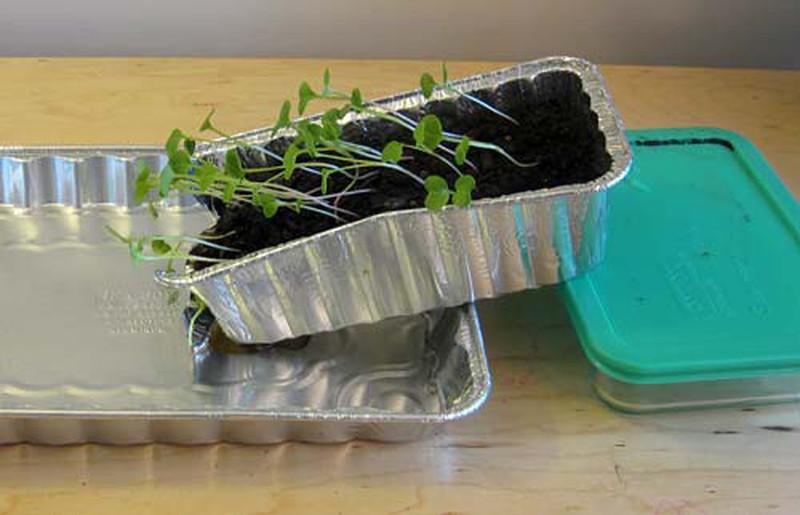STEAM Newsletter – #MentoringAmplifies
January 30, 2024
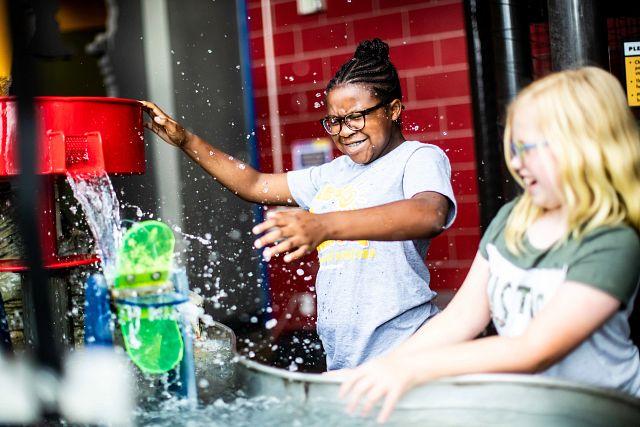 Happy New Year! Welcome to the first
installment of the CAN STEAM newsletter for 2024! In honor
of National
Mentoring Month, we reflect on the profound impact
mentors have on shaping the lives of individuals. Whether it’s
guiding aspiring minds, offering valuable insights, or providing
a supportive shoulder, mentors play a pivotal role in nurturing
the potential within each of us.
Happy New Year! Welcome to the first
installment of the CAN STEAM newsletter for 2024! In honor
of National
Mentoring Month, we reflect on the profound impact
mentors have on shaping the lives of individuals. Whether it’s
guiding aspiring minds, offering valuable insights, or providing
a supportive shoulder, mentors play a pivotal role in nurturing
the potential within each of us.
Role models and mentors, one of the Million Girls Moonshot’s transformative practices, play a pivotal role in STEAM to show younger people what is possible for them in this field. You can explore the Moonshot’s other transformative practices here.
#MentoringAmplifies in many ways. Explore these resources on how you can continue to inspire youth:
In This Newsletter:
Girls Who Code Summer Programming
Girls Who Code offers free virtual programs for high school girls and non-binary students to learn the computer science skills this Summer! More than learning to code, participants will meet inspiring professionals across diverse industries and tap into lifelong college and career support to help them succeed in their first interviews and jobs.
ACRES Coaching: Facilitating Engineering Practices Questions
Mondays: 1/29, 2/12, 2/26/2024 9am - 11am PST
Engineering has become a staple of STEM programming for youth. How can we confidently bring engineering into our programming and support youth as they engage in problem solving? In this module, participants gain first-hand experience with engineering by solving a design problem. They examine the components of the engineering design process and discuss ways to model the process with youth.
*The expectation is that you will be live at all three sessions and an active member of this coaching cohort. Recordings are not available if you are unable to attend.
REGISTER HERE Code: AC326EP (Coach Emma C)
build4good Summer 2024 Internship
Application due: March 1, 2024
The build4good application is open! They are seeking their 5th summer cohort of higher ed students majoring in computer science, digital media and design, or related fields eager to explore public sector careers. Selected interns will be matched with mission-driven nonprofits committed to harnessing technology for good.
For more information on the internship and how to apply, go to the build4good website.
Role Models, Mentors, and Families
Role models, mentors, and family engagement in a young person’s STEM education leads to increased interest, greater self-confidence, and ultimately a stronger STEM identity. Developing a science-related identity increases the likelihood that students will work toward developing science literacy, or even pursue a career in a science or STEM-related field.
- Creating Connections with Role Models: The Power of Collaboration: From Techbridge Girls, in collaboration with The National Girls Collaborative Project, this guide is intended to support leaders with the recruitment and preparation of role models to inspire girls in science, technology, and engineering. This is an outline of Techbridge’s “recipe for success” for role models, while encouraging you to make changes that best fit your needs.
- The Role of Diverse Mentorship in Education Equity - Mentors are uniquely positioned to help increase diversity, equity and inclusion (DEI) in STEM by serving as role models for individuals that look and identify like them, encouraging a more welcoming environment for continued growth for marginalized communities. Four IEEE members describe their personal experience and the impact that diverse role models made on their STEM careers.
- Role Models Matter Training: Virtual training program developed by Techbridge Girls to help role models develop the skills to best engage girls from marginalized communities.
- STEM Family Engagement Planning Tool: A planning tool to support programs in uplifting and empowering all youth and families in STEM.
Continuous STEM Learning Pathways
Research tells us that continuous engagement and exposure rather than limited one-time opportunities are needed to nurture the interest and motivation necessary for children to pursue STEM pathways long term. The Moonshot aims to understand and support transitions and handoffs that remove barriers for youth by connecting STEM learning across ages and settings, ensuring youth interest and motivation persists.
- The Connected Learning Research Network: Reflections on a Decade of Engaged Scholarship: This report from the Connected Learning Research Network (CLRN) presents a vision for understanding and revitalizing the ways in which we support learning during these changing times. This report synthesizes a varied set of content and perspectives: empirical research on the changing landscape of new media and learning, design principles, evaluation approaches, learner and case studies oriented to identifying and spreading positive innovations.
Engineering Mindsets
An engineering mindset refers to the attitudes and thinking skills associated with engineering — using a systematic engineering design process, considering real-world problems, applying math and science, and working in teams. The Moonshot focuses on 10 engineering practices. An overview of each practice follows and subsequent briefs will explore each one individually.
6 Ways to Combat STEM Stereotypes Through Play
STEM Access to All
Dr. Amanda Sullivan, who is the Senior Program Developer at NGCP, explains in this Genius of Play Expert Advice article that play is an excellent way for early educators and caregivers to challenge STEM stereotypes with young children. Dr. Sullivan offers six simple ways for educators and caregivers to promote play that can help break STEM stereotypes.
Girls Who Code FREE Coding Program-in-a-Box!
The international nonprofit Girls Who Code offers free computer science resources for your community – no coding experience required and at no cost!
When you start a free Girls Who Code Club, you’ll unlock resources, activities, and community for 3rd-12th graders to unleash their creativity, gain valuable coding skills, and imagine themselves as future tech leaders and innovators. Your Club members will learn how to build websites, applications, and games tackling important topics from climate change to cybersecurity and artificial intelligence.
Activities for January 2024!
- Can Plants Stop Soil Erosion?: Intermediate level environmental engineering activity lasting 2-4 weeks. Oil erosion can cost the world billions of dollars every year by washing pollutants into our streams and rivers and by causing the loss of farmland. What can you do about this problem? Help save the world (and some money!) with nothing more than a few plants!
- Build a Jumping Robot: Intermediate level mechanical engineering activity lasting 2-5 days. Can you build a robot that hops like a frog? In this engineering project, you will learn how to build a simple robot that uses the energy stored in a stretched rubber band to jump. You will use the engineering design process to try to make your robot jump higher and farther. How far can you make it jump?
- Gravity: It’s What Keeps Us Together: This set of ten easy to understand activities use math to understand gravity on Earth and in space. The activities are kid-centered (for example, what would I weigh on Mars) and use math in an integrated format.
- Space Weather Math: These hands-on activities combine an understanding of math with an understanding of weather and climate. Easy to prep, do, and follow up.
- Beginner’s Guide to Aerodynamics: Highly engaging activities for grades 5-8 and 9-12 combine math and engineering to create model planes.
Check Out CAN’s Other Newsletters!
Access the CAN newsletter archives to view past newsletters today! You may be interested in some of our other newsletters as well:

